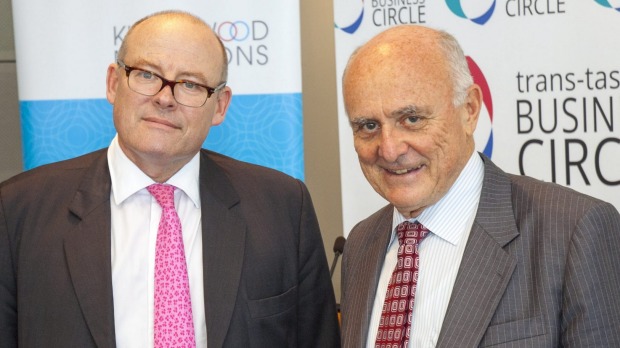
National Mental Health Commission chairman Professor Allan Fels (right) with lawyer John Canning, who has been diagnosed with bipolar disorder.
Poor mental health in the workplace is costing Australian businesses an estimated $11 billion a year in absenteeism and reduced productivity, a landmark Australian report has found.
Researchers from the University of NSW and the Black Dog Institute have reviewed a wide body of research to isolate six of the most effective strategies that have been found to improve the mental health of employees.
They include strategies to reduce absenteeism by making jobs more flexible and introducing policies to improve resilience. Early intervention and support for workers recovering from mental illness are also recommended.
Launching the report, National Mental Health Commission chairman Professor Allan Fels said reducing the impact of mental ill health should be a priority in an economy struggling to increase productivity.
“It’s important for businesses of all sizes to step up and take action, because you will only make things better, both for your people and for your bottom line,” he said.
Professor Fels said PricewaterhouseCoopers research had found that there was a $2.30 return for every $1 invested in mental health.
He said the promotion of mental health in workplaces was good not only good for the individuals involved but “for business”.
A mentally healthy workplace was one in which workers were encouraged to reach their full potential and which takes mental health seriously by addressing issues such as bullying.
Professor Fels challenged businesses to tackle the causes instead of the symptoms of mental health problems.
“I believe our businesses and our economy are paying too high a price for ignoring mental health,” he said. “It is no longer an issue we can afford to ignore.”
Professor Fels said government agencies including immigration, defence and police forces also needed to do more to improve the approach to mental health in their workplaces.
John Canning, a partner at the King and Wood Mallesons law firm, said he was diagnosed and treated for bipolar disorder in 2008.
“I had done a series of transactions in late 2007 and went home for Christmas and I was curled up in bed in early 2008 and didn’t know what was going on,” he said.
“That meant I needed to confront that. I spoke to the management team here and they have been fantastic, very supportive.
“I don’t require much from the firm other than understanding that I might need some rest now and again.”
